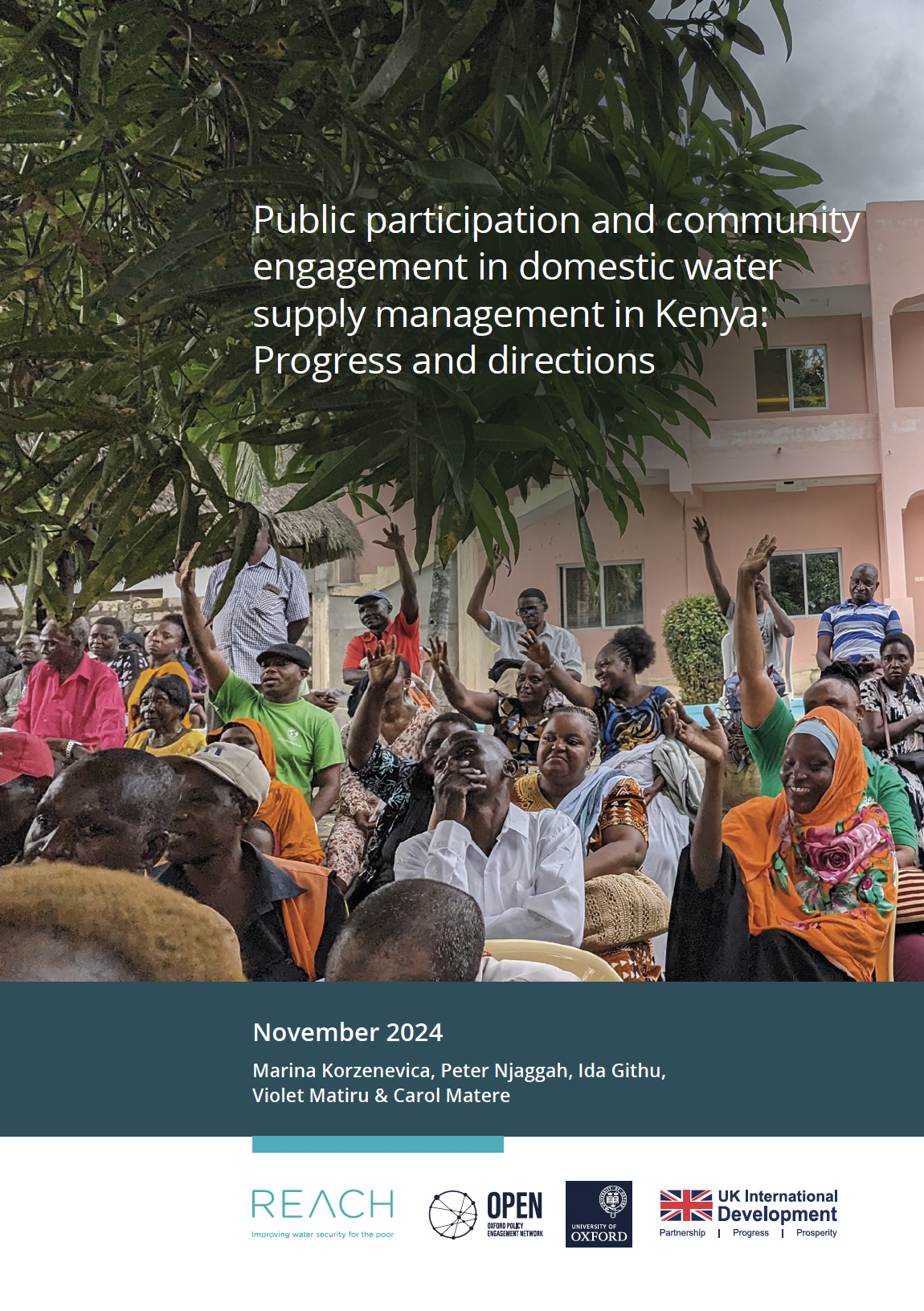Authors: Korzenevica, M., Njaggah, P., Githu, I., Matiru, V., Matere, C. (2024)
Consortium Authors: Ambuehl B., Gladstone, N., Luseka, E., Mariga, M., Musonge, P., Moikwabe, K.M.N., Sands, R., Taylor, S., and Trevor., J.
This report, produced by the University of Oxford in collaboration with representatives from civil society, research institutions, government organisations, and NGOs, evaluates public participation and community engagement in domestic water supply management in Kenya, analysing policy progress, practices, and challenges within an evolving governance landscape. By exploring public participation in the context of Kenya’s pursuit of water security, the report examines how community engagement can foster sustainability, transparency and empowerment.
Kenya’s water governance has undergone significant reforms over the past several decades. Legislative changes, particularly the Water Acts of 2002 and 2016, aimed to reform Kenya’s water sector by attracting investment, improving efficiency, and establishing participatory governance frameworks. Public participation, constitutionally mandated, is seen as central to improving water access, yet translating this principle into effective practice has proven challenging. A complex and evolving governance landscape now involves national, county, and local actors who must navigate issues related to institutional coordination, legal compliance, stakeholder engagement, and resource allocation.
The report provides recommendations aimed at enhancing public participation and promoting more effective, inclusive water governance in Kenya:
- Structured community engagement frameworks: Establishing clear, enforceable standards for continuous community engagement, including metrics for public participation depth and quality, could help translate public participation mandates into actionable practices across counties. Transparent assignment of responsibilities is essential for all parties. Integrating feedback mechanisms at each stage of project development is crucial for adaptive and responsive governance.
- Capacity building for community institutions: Strengthening the technical, financial, and operational capacities of local water user associations (WRUAs) and other community institutions is essential to sustainable engagement. Technical assistance, along with continuous training, can empower communities to actively participate in managing water resources. At the same time, high demands for contributions, can become unsustainable, putting pressures on competing responsibilities and community relations.
- Transparent data and information sharing: Creating platforms and protocols for two-way data sharing among stakeholders would enhance transparency, build community trust, and improve service accountability. By engaging communities in data collection, these platforms can also promote locally relevant, actionable insights into water management practices.

